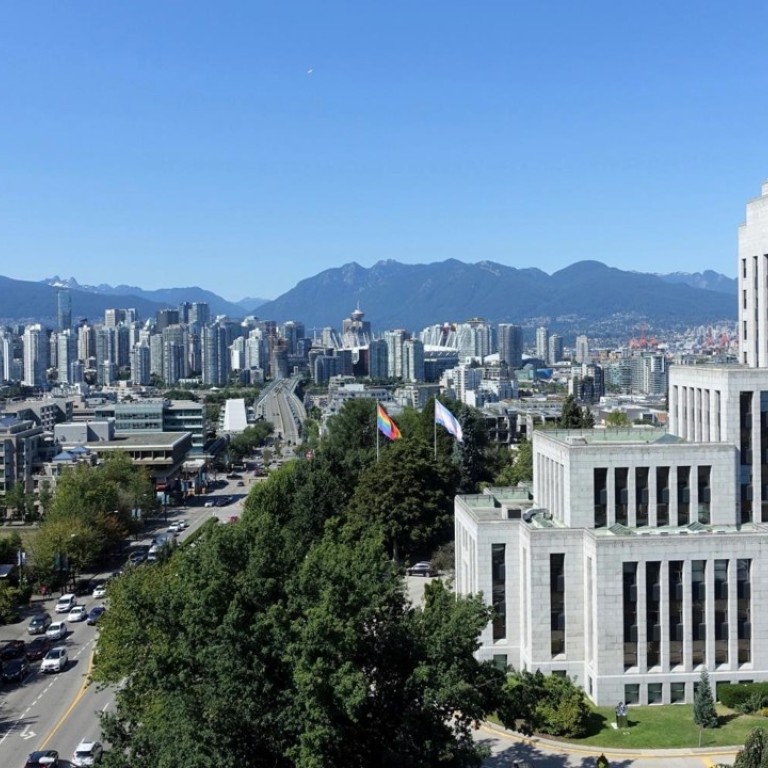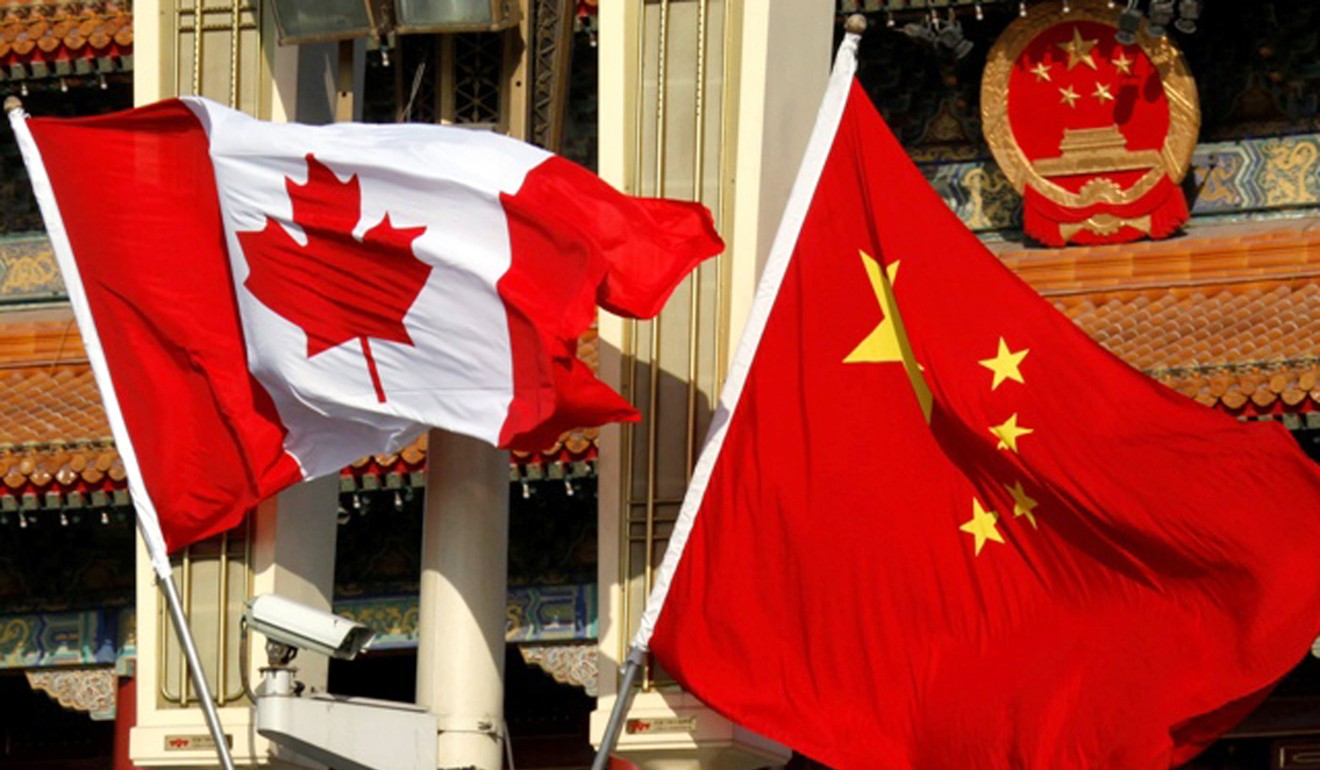
Former Chinese banker Lin Jin sues Canada to halt tax probe, retracting claim of residency after auditors seek foreign asset details
- Lin Jin moved to Vancouver in 2006 and owns three properties in Canada, but says she ‘incorrectly identified’ herself as a Canadian resident on tax returns
- In a lawsuit, she says she returned to live in China, and Canada’s tax collectors are overstepping by seeking details about her foreign assets
For six years, former Chinese banker Lin Jin filed her income taxes as a resident of Canada, having obtained her Canadian citizenship “for reasons of convenience and personal preference” in 2011.
But now, in the midst of an audit by the Canada Revenue Agency, she claims it was all a mistake.

Lin Jin’s case, laid out in a legal bid to prevent tax collectors pursuing details of her foreign assets, helps illustrate the challenges posed by the phenomenon of reverse migration among wealthy Chinese in Canada.
Lin Jin said she actually moved back to Wuhan in China’s Hubei province in June 2010 after a four-year stint living in Vancouver to be with her husband and children, and should not be considered a tax resident of Canada, and is taking the Canadian government to court to prove just that.
Rich migrants are exiting Canada but leaving families behind
On November 14, she filed an application in the Federal Court naming Canada’s attorney general as a respondent, claiming the Canada’s tax authority was overstepping its bounds by seeking detailed information about her foreign assets.
According to the application, Lin Jin was born in Huanggang in Hubei in 1972 and attended the Zhongnan University of Economics in Wuhan. Graduating in 1993, she went on to become a branch president with the China Construction Bank until 2006, when she emigrated to Canada, living in Vancouver.
She said her income tax filings with the CRA between 2010 and 2016 “incorrectly identified” her as a Canadian resident.

Her life since June 2010, she said, “has been centred in Wuhan and not in Canada” and her “personal and economic relations are much closer to China than they are to Canada”.
The rich Chinese immigrants to Canada who don’t really want to live there
Since moving back to China, Lin Jin said her visits to Canada have been brief and “predominantly for recreational purposes”, spending 36 days in the country in 2017 and 18 days in 2018.
She and her husband own five investment properties in China and three investment properties in Canada, and the CRA commenced an audit in February 2017, the same year Lin Jin started filing as a non-resident of Canada.
Eventually expanding to cover the 2014, 2015, and 2016 taxation years, the audit sought among other things to verify if Lin Jin had “accurately filed certain forms relating to the reporting of foreign assets, which are only required to be filed by residents of Canada”.
A lot of people coming from mainland China are non-compliant one way or another.
Lin Jin’s lawyers, Christopher Slade and Geoffrey Metropolit with Deloitte Tax Law LLP, did not respond to the South China Morning Post’s requests for comment on the case.
In a statement that did not address Lin Jin’s specific case, the Canada Revenue Agency said Canada’s taxation system is based on residency rather than citizenship. “Residents of Canada for tax purposes are considered to be factual or deemed residents,” it said.
“Factual residents are individuals who have established significant residential ties to Canada [while] deemed residents are individuals who have not established significant residential ties to Canada, but were in Canada for 183 days or more in a calendar year.”
Factual residents are liable for tax only on the portion of the year they met those benchmarks, while deemed residents are liable for Canadian income tax on worldwide income throughout the year.
Wei Cui, a tax law professor at the University of British Columbia, said in a phone interview that Lin Jin’s case was not particularly unusual and is “just the kind of thing that gets disputed”.
“Deloitte is acting on her behalf, so presumably the people at Deloitte thought that this was a reasonable case,” he said.
“A lot of cases, disputes get settled with the CRA before a case is filed.”
However, Cui said he’s not surprised that Lin Jin would be targeted for an audit if she was filing as a resident of Canada while actually living abroad.
“A lot of people coming from mainland China are non-compliant one way or another. They may be non-compliant with tax laws in China, they may be non-compliant with or suspected of being non-compliant with Chinese law of other sorts,” Cui said.
“The thing is, CRA’s task is to administer Canadian tax law and so as long as infractions of other countries laws do not have implications for Canadian tax law, the CRA really can’t do anything about it.”
Moreover, Cui said it’s unclear whether the CRA acted beyond its jurisdiction or was unreasonable in Jin’s case but it’s clear that she “represented to the CRA that she was a resident for a long time.”
“The facts stated suggest that this person was not a resident, and so why did she file as a resident for [six] years? It’s unclear,” he added.
The phenomenon of reverse migration outlined in Lin Jin’s case is particularly prevalent among wealthy migrants.
More than 40 per cent of breadwinners for millionaire migrant households in Canada appear to have exited the country, according to Census data.
Only 52.6 per cent of the 52,507 investor migrant households that moved to Canada between 1986 and the May 2016 census still had their original breadwinner, or “principal applicant”, living in Canada, according to a previous South China Morning Post analysis of the data.
Canada’s investor migration schemes have recently been dominated by mainland Chinese, and previously Hongkongers and Taiwanese.
This story has been updated to include comments from the CRA that were provided after initial publication
